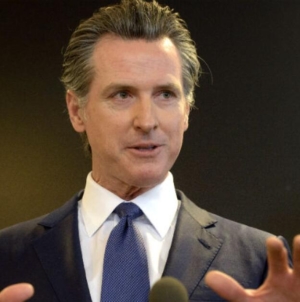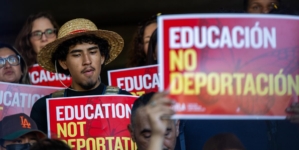The TechAID team, left to right: Jinglin Wang, Jessica Pan, Soma Nemenyi
Every year, eight million tons of electronic waste ends up in the oceans, while 2.7 billion people still do not have access to the technology necessary for everyday life and learning. The TechAid Foundation addresses this problem by transforming used devices into tools for opportunity and change.
The non-profit organization launched its project in Budapest in 2023, and has since expanded internationally, collaborating with students from eight different countries, including the United States, Singapore, and several European countries, to improve learning conditions through technology, China Global Television Network reported.
TechAID Foundation presentation. Photo: TechAID Foundation
One of their most significant local achievements in Hungary is the donation drive organized by the local international school, where they managed to collect more than 75 devices worth over $25,000. The donated working devices are currently being given to children in the orphanage in Szalonta, while the older, unusable devices are being responsibly recycled.
At the start of the project, the participants were already aware of the seriousness of e-waste: “We had seen it; old phones, broken laptops and the never-ending tangle of chargers seldom disappear. They end up, instead, in landfills, where their metals and chemicals seep into the soil and water around them like some unstoppable robot disease. This image stays with us throughout the project,” they wrote.
Fact
Globally, the e-waste crisis has reached alarming proportions: according to the United Nations, 62 million tons of discarded electronics were generated in 2022, an 82 percent increase compared to 2010—yet only about 15 percent is recycled. Much of this waste is illegally shipped from wealthier nations to poorer ones under the label of “reusable goods.” In Ghana’s infamous Agbogbloshie dump, workers, including children, burn old TVs, laptops, and cables to extract metals, releasing toxic fumes that poison the air, soil, and water.

Agbogbloshie dump. Photo: Wikipedia
Many suffer chronic illnesses; some spend half their earnings on medicine just to cope, according to the BBC. The World Customs Organization now ranks e-waste among the most commonly seized illegal shipments, with smugglers grinding down devices or even dumping cargo at sea to avoid detection.
The foundation’s goal is not only to reduce electronic waste, but also to shape the way we think about technology: We base every raffle, every drive, every partnership on that first conviction: your forgotten gadgets can, and must, be given a second life,” they emphasized.
The results so far are encouraging, and TechAid’s goal is to build a global recycling network: “With the unprecedented rate at which technology around us is advancing, it is essential to support children who do not have adequate technology by their side. Our future work will include seeking partnerships with NGOs, schools, technology companies, and local governments for wider reach and to raise awareness about sustainable tech use,” they stated.
The foundation concluded by emphasizing: “This is just the beginning. Together with worldwide communities, partners, and most importantly your help, we are determined to empower people by giving a second life to technology that would otherwise harm our environment. The future starts now.”
Related article
New Water Plan to Future-Proof Balaton Region’s Drinking Supply

EU-funded project to phase out lake dependency and build 750 km of pipeline for a cleaner, more reliable system.Continue reading
Via CGTN, BBC; Featured photo: TechAID Foundation
The post TechAID Foundation: Giving E-Waste a Second Life to Empower Children appeared first on Hungary Today.
Source link

































